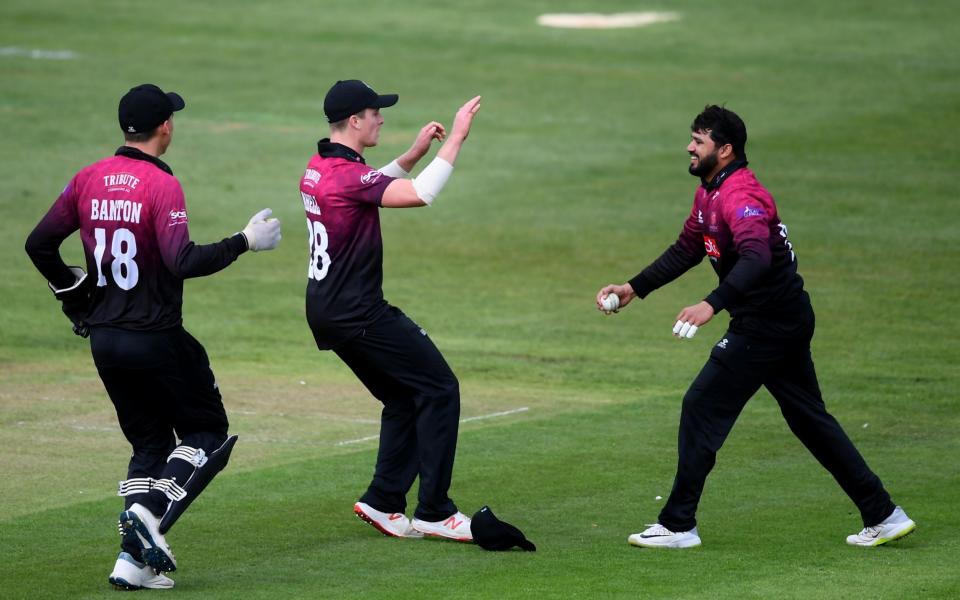Leading Pakistan: one of the toughest jobs in cricket

Shining, radiant, brilliant. This is what “Azhar” means, but it did not quite work out like that for Pakistan’s captain towards the end of the Old Trafford Test when Jos Buttler and Chris Woakes stole the game away with their audacious batting. Thus Pakistan, having dominated the game until the final hour, missed out on a victory that would have lived up to the first name of their captain, Azhar Ali.
Azhar has been a quiet achiever - one of the few visiting batsmen from any country to have scored a Test double-century in Australia - during his decade in international cricket as a solid top-order batsman. But the raucous reaction to Pakistan’s defeat, and the vituperation heaped upon Azhar, have come at the opposite end of the scale to his innate quietness. They illustrate how important, rightly or wrongly, Pakistan’s cricket captain is to his country.
“I take all responsibility for this defeat as captain,” Azhar admitted on his twitter account, adding that his team had not played well. But such a confession did not stop the storm of disapproval growing into a monsoon of condemnation.
“We’re losing this only becoz of azhar ali s******** captaincy dont let anyone fool you otherwise” was one such tweet aimed at Pakistan’s captain after England’s three-wicket victory in the Old Trafford opener.
“Azhar Ali out man can’t bat also a s*** captain doesn’t even talk to his bowlers literally keeps standing on the same place” was a criticism which at least offered the semblance of a constructive suggestion.
“Azhar Ali perhaps the most ordinary Test Captain of Pakistan Cricket History” was one of the politer verdicts. Little or no allowance for the fact that Azhar has been in charge for only seven Tests.
It may come as a surprise to some of Pakistan’s more passionate followers that Azhar, 35, is seen in a different light in certain quarters, such as Somerset, where he has played for the last two seasons as an overseas player.
“As far as I was concerned at Somerset, and a lot of the boys would say the same, he was an outstanding contributor to the team on and off the field ” said Somerset’s president and ex-captain Brian Rose, adding from his experience: “When you’re ahead of the game but eventually lose, it’s very hard to take.”

Somerset’s captain Tom Abell is even more fulsome about Azhar. “He’s probably the best team-man I’ve ever come across. His dedication to the team and what we were trying to achieve was incredible. He’s one of the nicest blokes you could wish to meet and he was always there offering support. I couldn’t think of anyone being a better leader of his country and I can categorically say there is no-one I’d rather play under.”
In an astute profile of Azhar before this Test series, Osman Samiuddin of Cricinfo characterised him as “that kind of strait-laced, honest struggler Pakistan cricket loses so easily. Not aggressive enough, not gifted enough, not a personality enough, not ambitious enough, not willing to make enough noise about perceived injustices, all attributes often mistaken for cricket ability in Pakistan.”
Of course, Pakistan’s Oxford-educated Test captains - Abdul Hafeez Kardar, the first of them, and the most famous, Imran Khan, now the country’s president - would have ridden superbly above the storm that ensued after the first Test defeat, and disdained social media had it been around.
Azhar has maintained a small Kardar-Khan link with Oxford by sending his son to the Dragon school there while he was representing Somerset. His son had a successful season, scoring a century in a 20-over prep school match. The father more modestly averaged 28 in county cricket but reactivated his legbreaks in white-ball cricket with success. Azhar began representing Pakistan at Under-15 level as a legspinner.
To lead his country back from 1-0 down against England, Azhar is going to have to make some runs and lead from the front. To do that he may have to correct the tendency which has crept into his batting to play from the crease, and often chest-on, as if he were one of the West Indian right-handed batsmen earlier this summer who were cannon-fodder for Stuart Broad, Woakes and the new Dukes ball.
As a captain, a harder streak perhaps at the crisis? “He’s incredibly caring and respectful,” Abell testified. But on the last afternoon a captain has to flog his horses if needs be, fire up his fast bowlers and not be too respectful of the opposition. Woakes scored 19 and 84 not out, while Broad made invaluable contributions of 29 not out and seven: both are notorious for being pace bowlers who “don’t like it up ‘em" but were hardly bounced.
And is it conceivable that some of the vocabulary used by his social-media critics might come in useful?


